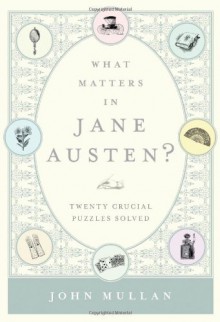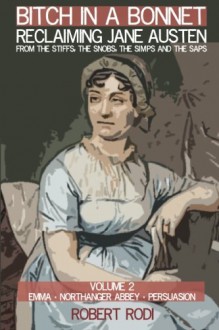New year, new ideas. In an effort to be more active as a blogger (and more engaged as a reader), I’m changing my usual Friday list post around a bit. Fabulous Finds Friday used to simply be an arbitrary list of cool finds from the week, which is fine, but kind of boring. Taking a hint from Top Ten Tuesday, I’ve decided to now do what I’m calling “Fabulous Five Friday.” The title isn’t terribly different, but the concept is more refined: each Friday I will create a curated list of books that are all related in some way—“best books about books” or “five favorite Stephen King novels,” etc. I know this can be similar to the Tuesday lists, but those tend to be broader, and I’ll be keeping an eye out to prevent topic overlap (or accidental theft of The Broke and the Bookish ideas). Maybe if I just run out of ideas, I will do top five best finds of the week/month, but those should be few and far between unless I somehow make five amazing finds all at once.
With that said, here is the first Fabulous Five Friday: Top Five Best Books About Jane Austen. (As the inaugural post, I had to go with my favorite topic.)
A Fine Brush on Ivory by Richard Jenkyns
The subtitle says that this is an appreciation of Austen and that is just what it is. It takes a thorough but non-academic approach to the various elements that Jenkyns finds most admirable and most deceptively complex for an author who worked at a self-professed "small" scale.
What Matters in Jane Austen? by John Mullen
A game of 20 questions in book form. Mullen interrogates Austens work, asking questions both literal (why does money matter?) and metaphorical (why is the seaside dangerous?). He explores topics I never considered, even after half a dozen readings of Austen's novels.
Searching for Jane Austen by Emily Auerbach
Why would we need to search for Jane Austen, one of the most well-known and continually adapted authors of all time? Auerbach's intent is to recenter our focus on Austen as keen observer of society with immense wit, irony, and even meanness, moving away from the portrait of her painted by her family and many fans as a boring but saintly spinster obsessed with romance plots. The book is publisheed by a university press, so it is academic in scope and intent, but not dry or littered with academese.
A Truth Universally Acknowledged edited by Susannah Carson
A collection of 33 essays from writers and scholars on why they appreciate Austen. The variety of voices and approaches gives a big picture view of how Austen's writing continually influences and brings joy to people of all ages, backgrounds, and tastes. And you are guaranteed to find a new perspective, regardless of how many times you've read Austen before.
Bitch in a Bonnet (volumes 1 and 2) by Robert Rodi
Rodi and I don't see eye to eye on all things Austen (we certainly disagree about Fanny Price, Henry Tilney, and Jane Fairfax), but his close-reading analysis of Austen's work is not only thorough, it is often hilarious. The book started out as a blog, with much the same intenet as Aurbach's book-- to reclaim Austen's "bitchiness" and liberate her from being stodgy Aunt Jane.

 Log in with Facebook
Log in with Facebook 












